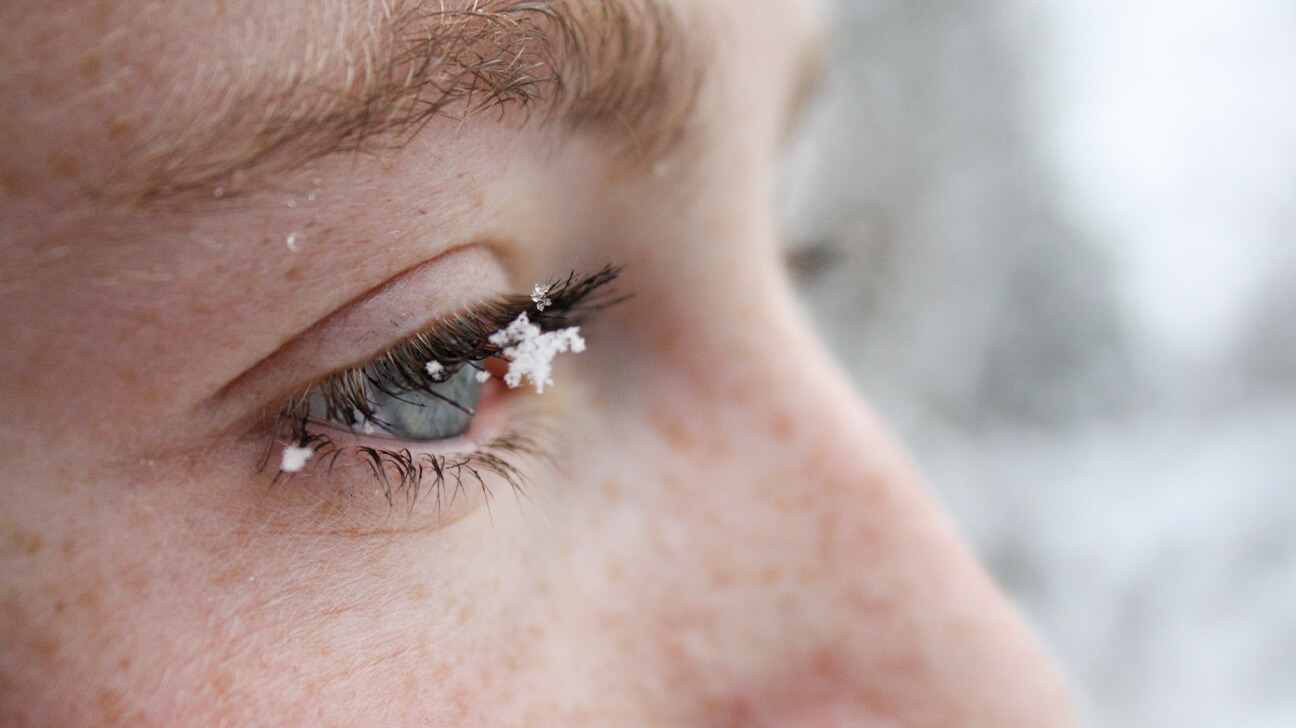
Treating (and Preventing) Dry Eyes in Winter
It’s not unusual to notice that your eyes are drier in the winter.
Dry eyes are most likely to occur in winter and spring, according to an article in the journal
While you can’t change the weather, there are treatments you can use during the wintertime that will reduce the scratchy, itchy, and sometimes painful symptoms that come with dry eyes.
Keep reading to learn about treatment and prevention strategies to help combat dry eyes in winter.
Treating dry eyes in winter
You may have to use a combination of treatments to see the best results.
Artificial tears
Artificial tears are a method of restoring natural moisture to your eyes. They are available over-the-counter at most drugstores. If you wear contacts, make sure you are purchasing a contacts-friendly option.
Try to apply the artificial tears several times throughout the day (usually up to six times). Read the eye drops label carefully: If the drops contain preservatives, applying them more frequently may irritate your eyes.
If you find yourself needing artificial tears more than six times a day, you may need to talk to your doctor about prescription treatments for dry eyes.
Eye ointments
Over-the-counter eye ointments can help to treat dry eyes. These are thicker than eyedrops, and you usually apply them to your inner lower lash line.
Because they are thicker, you can ideally apply eye ointments before bedtime. This reduces the likelihood that eye ointments will blur your vision.
You can purchase most eye ointments at drugstores. Many are labeled as “PM” ointments.
Indoor humidifiers
A key contributing factor to winter dry eyes is the use of heaters indoors. While you certainly shouldn’t freeze in the name of combating dry eyes, you can use an indoor humidifier to restore some moisture into the air.
A few things about humidifiers: it’s imperative that you keep them clean and away from little hands.
The moisture in humidifiers can naturally attract mold and bacteria, which can turn your otherwise helpful humidifier into a breeding ground for illness. Clean them regularly as the manufacturer suggests to keep this from occurring.
Also, heated humidifiers have the potential to injure and burn little ones who may accidentally knock them over or reach for them. Make sure you place your humidifier in a safe place in your home.
Warm compresses
If your eyes are very irritated and red, applying warm compresses can help to reduce redness and discomfort. Soak a washcloth in warm water and apply over the eyes for about 10 minutes to soothe and rest them.
Preventing dry eyes in winter
Here are some ways you can reduce dry eye symptoms this winter:
- Avoid the use of hair dryers, especially when the dryer blows directly into your eyes. Allow your hair to air-dry instead.
- Keep your home as cool as you can tolerate to reduce your heater usage.
- Consider adding omega-3 fatty acids to your diet. These may help to reduce dry eye (plus they’re good for you overall). You can also take dietary supplements, but check with your doctor first before beginning.
- Wear wrap-around glasses when you go outside. These will help to protect your eyes from drying wind (a common dry eye culprit) during the winter.
Know too that if you get a cold, taking antihistamines can lead to dry eyes.
Examples of antihistamines you may use to treat colds include brompheniramine and chlorpheniramine. However, if you need these medications to treat your cold, you may need to use more eyedrops.
Medication and dry eye
Some medications can make it more likely that you’ll have dry eyes. If your symptoms are very severe in the winter, talk to your doctor about your medication list to see if there are potential alternatives.
Examples of these medications include antidepressants, birth control pills, and medications used to treat blood pressure. Never stop using these medications without a doctor’s permission.
When to see a doctor
Occasional dry eye symptoms due to weather changes aren’t usually cause for concern. You’ll usually notice your symptoms worsen when you’ve been outside or in a very hot room.
However, if you use treatments and preventive methods to treat dry eyes, and your symptoms don’t improve, you may need to consider seeing your eye doctor.
There are many underlying medical conditions that can lead to dry eyes. Examples include:
- Sjögren’s syndrome
- Meibomian gland dysfunction
- vitamin A deficiency
- eye infections
A doctor can prescribe stronger eye drops or ointments or even recommend interventions, such as punctal plugs that help restore moisture to the eyes.
Takeaway
Dry eyes in winter are not uncommon. Winds, low humidity, cold temperatures, and use of indoor heating systems can all dry the eyes.
Fortunately, most symptoms will resolve with at-home treatments to restore moisture. However, if your dry eyes persist, talk to your doctor to make sure there’s not an underlying cause.



Leave Your Comment